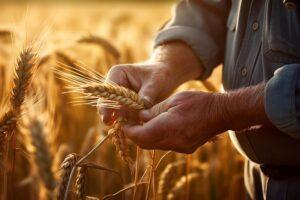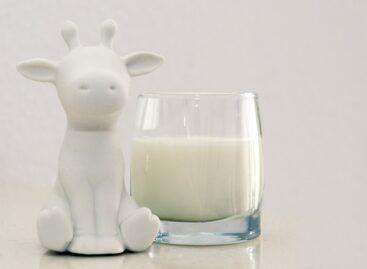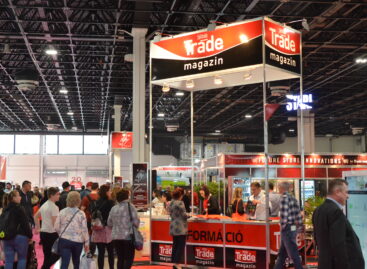The seed sector is preparing for the sowing of winter cereals starting in September
The biggest field work of the autumn, the sowing of cereals, will begin within weeks. According to the information of the Seed Association Interprofessional Organization and Product Council, the seed sector has a sufficient amount of good quality seeds at the disposal of farmers. This year, the organization announced a net indicative price of 171 thousand forints per ton for winter cereal seeds.

(Photo: Pixabay)
The sowing of winter cereals will begin in September. In the case of spring-sown crops, such as corn, the production risk increases due to weather difficulties, which directs attention to the production of winter-sown crop species, primarily winter cereals. According to the data of the National Chamber of Agriculture, last year farmers sowed winter wheat on 976 thousand hectares, winter barley on 275 thousand hectares, and triticale on 72 thousand hectares. Winter wheat has overtaken corn as the number one arable crop in Hungary. According to the association, farmers may continue to turn away from corn in the future. Part of the corn, which is considered the main fodder crop, may be replaced by alternative crops such as sorghum or barley, which is perfectly suitable for cattle feeding and has a high protein content and is easily digestible.
There will be sufficient quantities of cereal seeds
Summing up the most important experiences of the 2024/25 seed production season, the association highlighted: similarly to last year, a large difference has again emerged between the most important wheat-growing areas of Transdanubia and the Great Plain in terms of precipitation from sowing to almost harvest. The expected average yield for winter wheat for seed purposes is expected to be in the range of 6.5-7.0 t/ha. The national average yield of winter barley, which is in the range of 6.8-7.2 tons/ha, certainly exceeds the average yield of winter wheat. In the case of triticale, the actual harvested yield is expected to be around 6 t/ha. Regarding quality problems, it was found that the appearance of fungal diseases was not expected this year, but more intensive protection against pests was required. In the case of winter barley, the size of the propagation area has decreased slightly this year compared to last year, but the demand for metal-sealed seeds can still be safely met. The expected stocks of winter wheat, winter barley and triticale seeds provide a professionally acceptable renewal opportunity of over 45%. The amount of old stocks is minimal, slightly exceeding the previous year, but does not have a significant impact on the new crop stocks.
Prices have increased
Grain crop prices show a significant 13-15% increase compared to the previous year and will continue to increase slightly. There is no significant difference between the feed and milling categories. There was a 13-15% increase in production costs compared to the previous year, which is also reflected in the crop sales prices. Despite the high level of seed production costs, it can be predicted that the end-user prices of metal-sealed seeds will increase slightly, not reaching the rate of crop price growth.
The Seed Association has published an indicative price
The Seed Association Interprofessional Organization and Product Council has published an indicative price of HUF 171,000 + VAT per ton for seeds of the II. reproduction stage of winter cereals this year, which is understood to be in a bag, treated with fungicide, metal-sealed, loaded on a truck at the seller’s premises, and is not a fixed price and is not a binding or recommended price. The specific contractual price is determined by the parties themselves. The seed price information does not constitute a price fixing, and its primary purpose is to provide indicative, expected market price information. The indicative price is an important signal to seed producers to sell their stocks not as commodity grains but as seeds, despite the slowly increasing crop prices, ensuring the necessary amount of seed stocks for farmers.
It is worth thinking about metal-sealed seeds
The Seed Association calls on farmers to purchase and sow metal-sealed seeds certified for the autumn season, because their use is a fundamental condition for successful and productive grain production. One of their most important advantages is genetic purity, which ensures the production of a uniform, varietal-identical and highly marketable commodity base. In contrast to replanted seeds, metal-sealed seeds are officially controlled, thus traceable and of guaranteed quality, i.e. they offer greater crop safety and yield.
vszt.hu
Related news
Ministry of Agriculture: the government is supporting the development of crop dryers with significant resources
🎧 Hallgasd a cikket: Lejátszás Szünet Folytatás Leállítás Nyelv: Auto…
Read more >AM: government helps dairy farmers with new measure
🎧 Hallgasd a cikket: Lejátszás Szünet Folytatás Leállítás Nyelv: Auto…
Read more >Related news
The economic sentiment index deteriorated in the euro area and the EU in February, but improved in Hungary
🎧 Hallgasd a cikket: Lejátszás Szünet Folytatás Leállítás Nyelv: Auto…
Read more >








